Sunflower seeds, also known as the fruits of the sunflower plant, have gained popularity as a versatile superfood. Packed with essential nutrients and health benefits, sunflower seeds are becoming increasingly popular among health-conscious consumers. This article provides an overview of sunflower seeds, discussing their nutritional value, health benefits, various uses, and tips on incorporating them into a balanced diet. Nutritional Value: Sunflower seeds are a nutrient-dense food, rich in healthy fats, proteins, dietary fiber, vitamins, and minerals. They are an excellent source of vitamin E, which acts as a powerful antioxidant protecting the body against free radicals that can lead to chronic diseases. Additionally, sunflower seeds contain a substantial amount of folate, magnesium, potassium, and B-complex vitamins, contributing to overall wellness. Health Benefits: 1. Heart Health: The high content of vitamin E, phytosterols, and monounsaturated fats in sunflower seeds can help reduce cholesterol levels, improving heart health and lowering the risk of cardiovascular diseases. 2. Antioxidant Properties: Sunflower seeds are abundant in antioxidants like vitamin E, selenium, and phenolic compounds. These antioxidants protect cells from oxidative damage and inflammation, reducing the risk of chronic diseases such as cancer and aging.
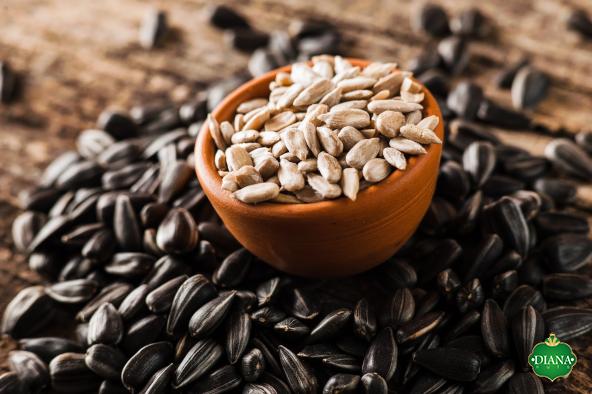
nut
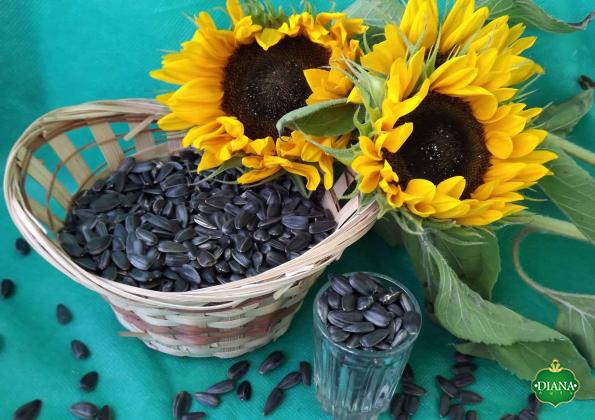 3. Weight Management: Sunflower seeds are a satisfying and nutrient-dense snack that can help control appetite and promote weight management. The combination of healthy fats and fibers in sunflower seeds helps maintain satiety, preventing overeating. 4. Blood Sugar Regulation: The low glycemic index of sunflower seeds, combined with their high fiber content, makes them an excellent option for managing blood sugar levels. They promote a gradual release of glucose into the bloodstream, preventing sudden spikes and crashes in energy levels. 5. Bone Health: Sunflower seeds contain essential minerals like magnesium and phosphorus, crucial for healthy bones and teeth. Regular consumption can help reduce the risk of osteoporosis and promote overall skeletal strength. Uses and Culinary Applications: Sunflower seeds are incredibly versatile and can be enjoyed in various ways, adding flavor, texture, and nutritional value to numerous dishes. Some common uses include: 1. Snacking: Roasted sunflower seeds make for a delicious and nutritious snack. They can be seasoned with salt, spices, or herbs based on personal preference. 2. Baking and Cooking: Sunflower seeds can be incorporated into bread and muffin recipes, adding a nutty flavor and texture to baked goods. They can also be toasted and sprinkled over salads, soups, stir-fries, and roasted vegetables. 3. Nut Butter: Sunflower seed butter, also known as sunbutter, is a popular alternative to traditional nut butters like peanut butter. It is an excellent option for those with nut allergies or sensitivities. 4. Toppings and Garnishes: Ground sunflower seeds can be used as a topping for yogurt, oatmeal, smoothie bowls, and desserts like puddings and parfaits. Incorporating Sunflower Seeds into a Balanced Diet: To maximize the nutritional benefits of sunflower seeds, consider the following tips when incorporating them into your diet: 1. Portion Control: While sunflower seeds offer an array of health benefits, they are calorie-dense. Thus, portion control is essential to maintain a balanced diet.
3. Weight Management: Sunflower seeds are a satisfying and nutrient-dense snack that can help control appetite and promote weight management. The combination of healthy fats and fibers in sunflower seeds helps maintain satiety, preventing overeating. 4. Blood Sugar Regulation: The low glycemic index of sunflower seeds, combined with their high fiber content, makes them an excellent option for managing blood sugar levels. They promote a gradual release of glucose into the bloodstream, preventing sudden spikes and crashes in energy levels. 5. Bone Health: Sunflower seeds contain essential minerals like magnesium and phosphorus, crucial for healthy bones and teeth. Regular consumption can help reduce the risk of osteoporosis and promote overall skeletal strength. Uses and Culinary Applications: Sunflower seeds are incredibly versatile and can be enjoyed in various ways, adding flavor, texture, and nutritional value to numerous dishes. Some common uses include: 1. Snacking: Roasted sunflower seeds make for a delicious and nutritious snack. They can be seasoned with salt, spices, or herbs based on personal preference. 2. Baking and Cooking: Sunflower seeds can be incorporated into bread and muffin recipes, adding a nutty flavor and texture to baked goods. They can also be toasted and sprinkled over salads, soups, stir-fries, and roasted vegetables. 3. Nut Butter: Sunflower seed butter, also known as sunbutter, is a popular alternative to traditional nut butters like peanut butter. It is an excellent option for those with nut allergies or sensitivities. 4. Toppings and Garnishes: Ground sunflower seeds can be used as a topping for yogurt, oatmeal, smoothie bowls, and desserts like puddings and parfaits. Incorporating Sunflower Seeds into a Balanced Diet: To maximize the nutritional benefits of sunflower seeds, consider the following tips when incorporating them into your diet: 1. Portion Control: While sunflower seeds offer an array of health benefits, they are calorie-dense. Thus, portion control is essential to maintain a balanced diet.
Specifications of nut
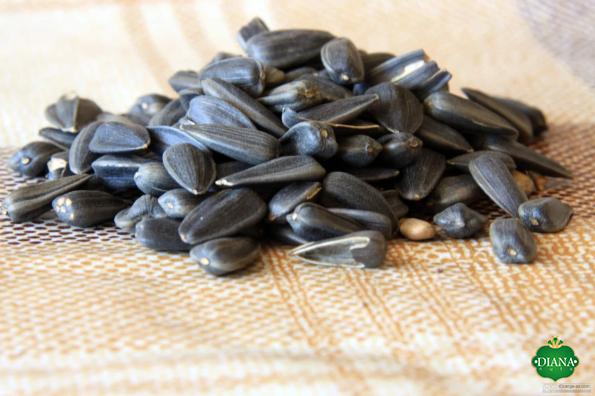 2. Diverse Use: Experiment with different culinary applications of sunflower seeds, such as incorporating them into smoothies, adding them to homemade granola bars, or using them as a garnish for roasted vegetables. 3. Varietal Selection: Sunflower seeds come in different varieties, such as hulled and unhulled seeds or salted and unsalted variants. Choose the option that aligns best with your dietary preferences and requirements. 4. Allergies and Sensitivities: It is important to note that some individuals may be allergic to sunflower seeds. If you have a seed allergy, it is advisable to avoid sunflower seeds and consult with a healthcare professional. Conclusion: Sunflower seeds are a nutritional powerhouse, offering a range of health benefits and versatility in culinary applications. With their rich content of vitamins, minerals, healthy fats, and antioxidants, sunflower seeds are an excellent addition to a balanced diet. Whether enjoyed as a snack or used in cooking and baking, incorporating sunflower seeds into your daily routine can enhance overall health and well-being. So, why not add them to your shopping list and reap the numerous benefits of this remarkable superfood?Heading 1: Sunflower Seeds: A Growing Market Trend The market for sunflower seeds has witnessed significant growth in recent years, driven by increasing consumer awareness of their nutritional benefits and versatile culinary applications. The global sunflower seeds market is projected to continue its upward trajectory, fueled by rising health consciousness, growing demand for plant-based protein sources, and expanding product portfolios of major players in the food and beverage industry. Heading 2: Market Overview and Key Players The sunflower seeds market is characterized by a competitive landscape, with several key players vying for market share. Major companies operating in this sector include Conagra Brands, Archer Daniels Midland Company, PepsiCo, Inc., and D&B Foods, among others. These companies are actively engaged in product innovation, expanding distribution networks, and strategic partnerships to stay ahead in the market. Heading 3: Rising Consumer Interest in Health and Wellness Increasing consumer interest in health and wellness has been a driving force behind the growing demand for sunflower seeds. With the rise in lifestyle diseases, consumers are looking for healthier and more nutritious snack options. Sunflower seeds, with their high nutrient content and potential health benefits, offer a convenient and tasty alternative to traditional snacks high in saturated fats and refined sugars. Heading 4: Shift Towards Plant-Based Proteins The global shift towards plant-based diets has also contributed to the increasing popularity of sunflower seeds. As more consumers adopt vegetarian, vegan, or flexitarian lifestyles, there is a growing demand for plant-based protein sources. Sunflower seeds are a rich source of protein, making them an attractive option for individuals seeking sustainable and plant-based alternatives to meat and dairy products. Heading 5: Product Innovation and Diversification To cater to the evolving consumer preferences, manufacturers are focusing on product innovation and diversification. Companies are introducing innovative flavors, such as barbecue, dill pickle, and honey-roasted, to attract a wider consumer base.
2. Diverse Use: Experiment with different culinary applications of sunflower seeds, such as incorporating them into smoothies, adding them to homemade granola bars, or using them as a garnish for roasted vegetables. 3. Varietal Selection: Sunflower seeds come in different varieties, such as hulled and unhulled seeds or salted and unsalted variants. Choose the option that aligns best with your dietary preferences and requirements. 4. Allergies and Sensitivities: It is important to note that some individuals may be allergic to sunflower seeds. If you have a seed allergy, it is advisable to avoid sunflower seeds and consult with a healthcare professional. Conclusion: Sunflower seeds are a nutritional powerhouse, offering a range of health benefits and versatility in culinary applications. With their rich content of vitamins, minerals, healthy fats, and antioxidants, sunflower seeds are an excellent addition to a balanced diet. Whether enjoyed as a snack or used in cooking and baking, incorporating sunflower seeds into your daily routine can enhance overall health and well-being. So, why not add them to your shopping list and reap the numerous benefits of this remarkable superfood?Heading 1: Sunflower Seeds: A Growing Market Trend The market for sunflower seeds has witnessed significant growth in recent years, driven by increasing consumer awareness of their nutritional benefits and versatile culinary applications. The global sunflower seeds market is projected to continue its upward trajectory, fueled by rising health consciousness, growing demand for plant-based protein sources, and expanding product portfolios of major players in the food and beverage industry. Heading 2: Market Overview and Key Players The sunflower seeds market is characterized by a competitive landscape, with several key players vying for market share. Major companies operating in this sector include Conagra Brands, Archer Daniels Midland Company, PepsiCo, Inc., and D&B Foods, among others. These companies are actively engaged in product innovation, expanding distribution networks, and strategic partnerships to stay ahead in the market. Heading 3: Rising Consumer Interest in Health and Wellness Increasing consumer interest in health and wellness has been a driving force behind the growing demand for sunflower seeds. With the rise in lifestyle diseases, consumers are looking for healthier and more nutritious snack options. Sunflower seeds, with their high nutrient content and potential health benefits, offer a convenient and tasty alternative to traditional snacks high in saturated fats and refined sugars. Heading 4: Shift Towards Plant-Based Proteins The global shift towards plant-based diets has also contributed to the increasing popularity of sunflower seeds. As more consumers adopt vegetarian, vegan, or flexitarian lifestyles, there is a growing demand for plant-based protein sources. Sunflower seeds are a rich source of protein, making them an attractive option for individuals seeking sustainable and plant-based alternatives to meat and dairy products. Heading 5: Product Innovation and Diversification To cater to the evolving consumer preferences, manufacturers are focusing on product innovation and diversification. Companies are introducing innovative flavors, such as barbecue, dill pickle, and honey-roasted, to attract a wider consumer base.
buy nut
 Additionally, there is a growing trend of incorporating sunflower seeds into snack mixes, energy bars, and granola products, further expanding their market presence. Heading 6: Expanding Distribution Channels The increasing availability of sunflower seeds through various distribution channels has also contributed to market growth. Apart from traditional brick-and-mortar retail stores, sunflower seeds are now widely available through online retailers, specialty health food stores, and convenience stores. This wider availability has made it easier for consumers to include sunflower seeds in their shopping baskets and try out different brands and varieties. Heading 7: Rising Demand for Organic and Non-GMO Varieties As consumers become more conscious of the environmental impact of their food choices, there is a growing demand for organic and non-GMO sunflower seeds. Organic sunflower seeds are grown without the use of synthetic fertilizers, pesticides, or genetically modified organisms. This trend is driven by the desire for cleaner and more sustainable food options and offers opportunities for organic farmers and manufacturers in the sunflower seeds market. Heading 8: Challenges and Opportunities While the sunflower seeds market has experienced significant growth, it is not without its challenges. Fluctuating prices of raw materials, such as sunflower kernels, can impact the profitability of manufacturers. Additionally, competition from other nut and seed varieties, such as almonds and chia seeds, presents a challenge to market players. However, there are also opportunities for growth and innovation. The rising interest in functional foods and the development of value-added sunflower seed products, such as fortified varieties or those with added probiotics, can help companies differentiate their offerings and tap into new consumer segments. Heading 9: Regulatory Landscape and Labeling Requirements Food safety regulations and labeling requirements play a crucial role in the sunflower seeds market. Manufacturers are required to comply with regulations regarding allergen labeling, health claims, and country-specific food safety standards. Adhering to these regulations ensures product quality and safety, instilling consumer confidence and trust in the brand. Heading 10: Conclusion Sunflower seeds have emerged as a popular superfood, catering to the growing demand for healthier and plant-based snack options. With their nutritional value, versatility, and increasing availability, sunflower seeds offer a lucrative market opportunity for manufacturers and entrepreneurs. As consumer preferences continue to evolve towards healthier eating habits, the sunflower seeds market is expected to witness sustained growth, providing immense potential for businesses to capitalize on this emerging trend.
Additionally, there is a growing trend of incorporating sunflower seeds into snack mixes, energy bars, and granola products, further expanding their market presence. Heading 6: Expanding Distribution Channels The increasing availability of sunflower seeds through various distribution channels has also contributed to market growth. Apart from traditional brick-and-mortar retail stores, sunflower seeds are now widely available through online retailers, specialty health food stores, and convenience stores. This wider availability has made it easier for consumers to include sunflower seeds in their shopping baskets and try out different brands and varieties. Heading 7: Rising Demand for Organic and Non-GMO Varieties As consumers become more conscious of the environmental impact of their food choices, there is a growing demand for organic and non-GMO sunflower seeds. Organic sunflower seeds are grown without the use of synthetic fertilizers, pesticides, or genetically modified organisms. This trend is driven by the desire for cleaner and more sustainable food options and offers opportunities for organic farmers and manufacturers in the sunflower seeds market. Heading 8: Challenges and Opportunities While the sunflower seeds market has experienced significant growth, it is not without its challenges. Fluctuating prices of raw materials, such as sunflower kernels, can impact the profitability of manufacturers. Additionally, competition from other nut and seed varieties, such as almonds and chia seeds, presents a challenge to market players. However, there are also opportunities for growth and innovation. The rising interest in functional foods and the development of value-added sunflower seed products, such as fortified varieties or those with added probiotics, can help companies differentiate their offerings and tap into new consumer segments. Heading 9: Regulatory Landscape and Labeling Requirements Food safety regulations and labeling requirements play a crucial role in the sunflower seeds market. Manufacturers are required to comply with regulations regarding allergen labeling, health claims, and country-specific food safety standards. Adhering to these regulations ensures product quality and safety, instilling consumer confidence and trust in the brand. Heading 10: Conclusion Sunflower seeds have emerged as a popular superfood, catering to the growing demand for healthier and plant-based snack options. With their nutritional value, versatility, and increasing availability, sunflower seeds offer a lucrative market opportunity for manufacturers and entrepreneurs. As consumer preferences continue to evolve towards healthier eating habits, the sunflower seeds market is expected to witness sustained growth, providing immense potential for businesses to capitalize on this emerging trend.

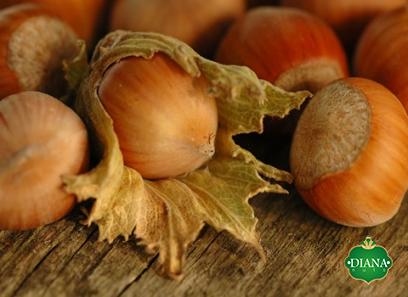
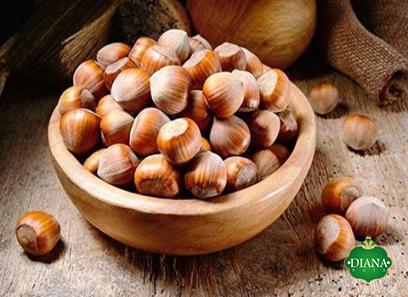
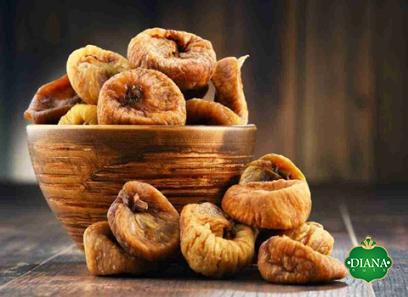
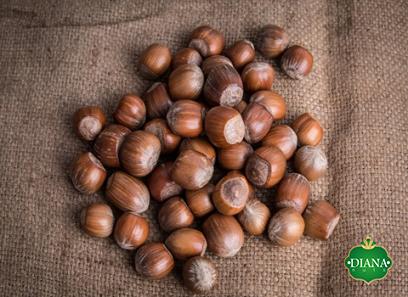

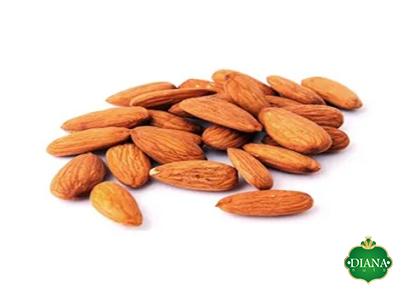
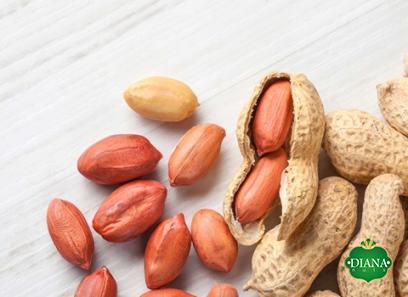
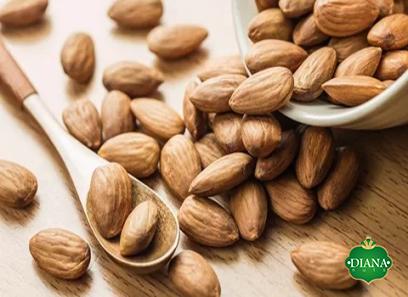
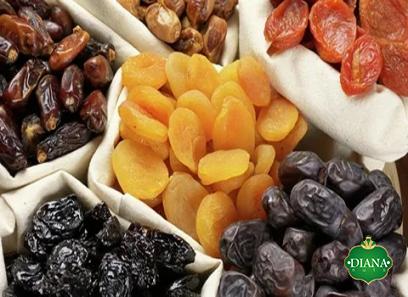
Your comment submitted.